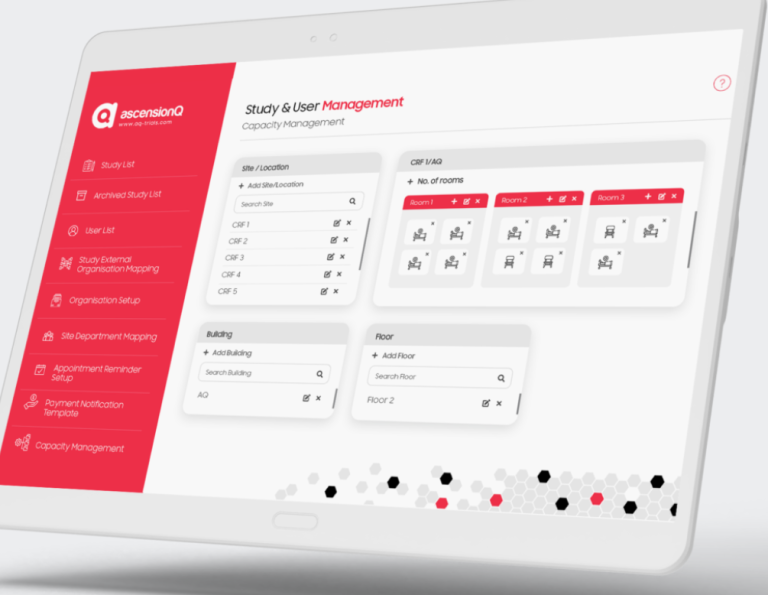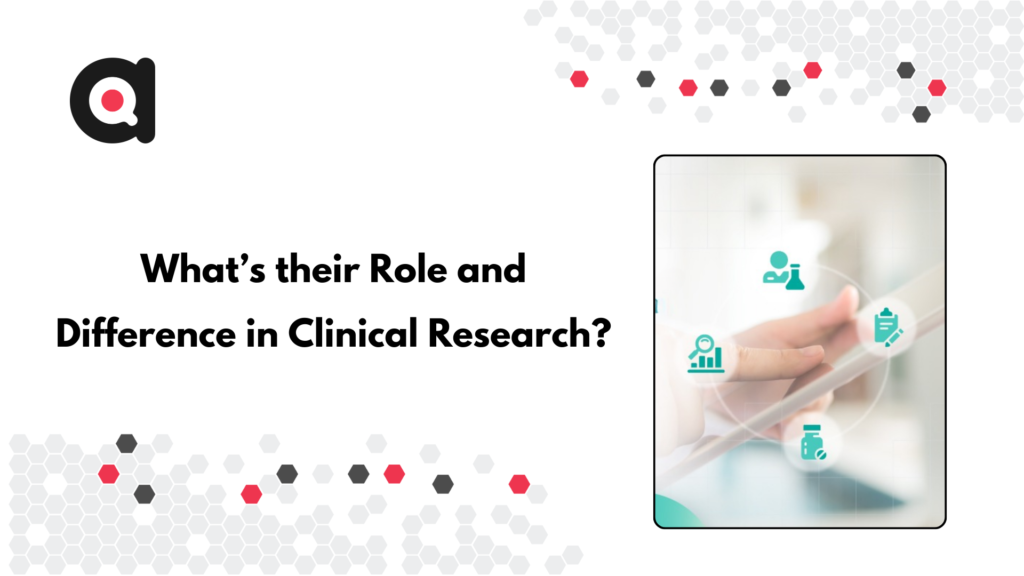Industry News
Ultimate Guide to Understanding What is a CTMS - Clinical Trial Management System
Table of Contents
ToggleAQ

As of 2024, more than 544 global enterprises are leveraging Clinical Trial Management System (CTMS) software to enhance their clinical trial processes.
Clinical Trial Management System (CTMS) has indeed emerged as a vital solution in the intricate domain of clinical research. From orchestrating to conducting and monitoring the diverse facets and collecting data integral to clinical trials—there’s a lot more that researchers can leverage from it. A CTMS offers a holistic solution that integrates various dimensions of clinical trials in one place.
This article aims to offer a thorough understanding of what is a CTMS in clinical research—covering its diverse capabilities, benefits, and integration with other systems. We will also explore our future-proof CTMS, AQ’s innovative approach to clinical operational and document management, outlining its modules and features.
What is a CTMS - Clinical Trial Management System?
CTMS is a specialised software that facilitates research teams and streamlines planning, tracking, and management of various aspects of clinical trial processes. The primary goal of a CTMS system for clinical trials is to streamline workflows while ensuring adherence to regulatory guidelines and enabling informed decision-making. It is often viewed as a catch-all term, given its wide range of modules and functionalities designed to address various elements of clinical trial administration.
In short— A Clinical Trial Management System (CTMS) is a software tool used by biotechnology and pharmaceutical industries to manage clinical trials. It maintains and manages Clinical Trials, Sites, Investigators, Participants, Study Schedules, Regulatory Documents, Study Teams, Financials, Monitoring, Compliance, Adverse Events, Milestones, and Reports, enhancing the efficiency and success of clinical research.
Who Needs a CTMS?
CTMS is important for anyone who is involved in planning, conducting, or overseeing clinical trials to enhance efficiency, accuracy, and compliance throughout the trial lifecycle:
- Clinical Research Organisations (CROs) utilise CTMS products to streamline and manage various aspects of clinical trials, including participant recruitment, data collection, and regulatory compliance.
- Pharmaceutical and Biotechnology Companies employ CTMS to enhance the efficiency of clinical trial processes, ensuring better coordination among different teams and adherence to timelines. Furthermore, leveraging CTMS applications help optimise resource allocation, track trial progress, and maintain comprehensive documentation, facilitating successful trial outcomes.
- Academic Research Institutions conducting clinical research rely on CTMS to organise and oversee the complex tasks involved in running clinical trials, leading to improved data accuracy and regulatory compliance.
The Eight Pillars of Future-Proof clinical trial management system CTMS
After exploring what is a CTMS in clinical trials, let’s get quick insights into the key features and components of a well-built clinical trial management system:
1. Stakeholder Coordination
Essential for effectively managing the various stakeholders involved in a clinical trial—it includes advanced features for tracking and coordinating research sites, study teams, and other key contacts. This way, it ensures that everyone is well-informed, aligned with the study objectives, and can communicate efficiently.
2. Scheduling & Oversight
Providing a centralised platform for scheduling, monitoring, and collaboration—CTMS contributes to clinical research success in real-time. It ensures that trials are conducted efficiently, compliantly, and with a focus on data quality. This level of control and oversight is essential for bringing new medical treatments and therapies to patients while adhering to rigorous regulatory standards.
3. Record Keeping & eTMF
Facilitating the accumulation, data storage, version control, and governance of crucial documents—CTMS helps sponsors and investigators confidently navigate the complex landscape of clinical research. Ultimately, it advances medical science while allowing us to identify potential bottlenecks and take corrective actions quickly.
4. Milestone Planning & Task Allocation
CTMS assists in formulating and tracking significant study milestones and responsibilities—while enhancing communication and promoting data-driven decision-making. Leveraging its advanced capabilities, clinical trial researchers can work smoothly on schedule without making any errors. This is necessary for increasing the efficiency and success rate.
5. Financial Agreements & Remuneration System
CTMS offers a comprehensive solution for managing the financial aspects of clinical trials—including contract management, budgeting, compensation, invoicing, and compliance. Using CTMS can help organisations enhance financial transparency, control costs, and streamline everything. This ultimately accelerates the process while sticking to the budget.
6. Participant Monitoring & EDC Synchronisation
Integrating CTMS with Electronic Data Capture (EDC) systems enables real-time tracking, visit scheduling, safety monitoring, seamless data integration, and much more. This enhances the overall efficiency and accuracy of clinical trials while contributing to participant safety and data integrity—leading to successful and compliant clinical research outcomes.
7. Inspection Report Creation & Correspondence Automation
CTMS plays a vital role in automating the creation of inspection reports and streamlining regulatory correspondence. It helps to navigate regulatory inspections effectively while maintaining a strong track record of compliance in clinical research endeavours. In short, clinical trial management systems ensure integrity and security in real-time.
8. Data Analytics & Business Intelligence
Clinical trial management systems are designed to offer real-time data analysis and tailored reports for data-driven decision-making. The CTMS analytics and BI empower researchers and stakeholders to access detailed insights into clinical trial progress, patient Enrolment, and resource allocation for efficient data aggregation, visualisation, and interpretation.
CTMS and Compliance
It is the first and foremost thing to understand: clinical trials must adhere to specified regulations and ensure compliance with ethical and legal standards. Since this isn’t hassle-free, researchers should leverage a clinical trial management system (CTMS) to streamline and manage complex trial processes while maintaining compliance with regulatory requirements.
- Regulatory Document Management: Utilise a CTMS to organise and maintain essential regulatory documents, ensuring they are up-to-date and readily accessible for audits
- Protocol Compliance: Let a CTMS ensure adherence to the study protocol by tracking and managing protocol deviations and amendments
- Safety Reporting: Use a CTMS to facilitate the reporting of adverse events and serious adverse events, ensuring timely and accurate submission to regulatory authorities
- Monitoring and Auditing: Take help from the CTMS to monitor clinical trial sites and arrange audits while maintaining an organised record of study activities, documents, and communications
- Site Training and Certification: Use a CTMS to track and manage the training and certification status of site personnel, ensuring that all staff involved in the trial are adequately trained
- Electronic Signatures and Audit Trails: Make use of CTMS to leverage electronic signatures and maintain detailed audit trails, ensuring the integrity and traceability of data and actions taken within the system
What are the Advantages of Using a CTMS (Clinical Trial Management System)?
A CTMS offers numerous advantages in the management of clinical trials—ranging from improved efficiency and data accuracy to better compliance, patient recruitment, and collaboration among stakeholders.
Here’s a brief overview of some of the benefits of CTMS, which contribute to more successful and cost-effective clinical trials—ultimately helping to advance medical research and drug development:
- Data Transparency – CTMS offers a transparent and unified platform for accessing updated and real-time study information, enabling the research team to make well-informed decisions at every step
- Team Synergy – CTMS serves as a collaborative platform for study team members. It facilitates effective communication and coordination among researchers, clinicians, monitors, and administrators
- Operational Efficiency – CTMS assists the research team in planning, tracking, and overseeing the study proficiently. Automating various administrative tasks helps to streamline operations and reduce errors
- Study Governance – CTMS offers transparency in managing the crucial elements of the study, including initiation, participant screening, Enrolment, and document procurement. It ensures real-time monitoring
- Resource Optimisation – CTMS helps optimise the allocation of resources, such as personnel, equipment, and budgets. Providing real-time data and analytics enables better resource management
- Data Security and Compliance – CTMS systems include multiple robust security features and support regulatory compliance to protect sensitive patient data and adhere to relevant regulations or guidelines
How Does CTMS Interact With Other Systems in Clinical Trials?
Clinical trials involve complex processes and require coordinating various systems and tools to manage and monitor the research effectively. Indeed, a Clinical Trial Management System (CTMS) is a critical component in this ecosystem, and it interacts with several other systems to streamline the trial’s operations.
Here are some of the key systems used in clinical trials and how they interact with a CTMS:
1. Electronic Health Records (EHRs)
EHRs store and manage patients’ medical histories and clinical data. Therefore, CTMS can be integrated with EHRs to facilitate the identification and recruitment of eligible participants for clinical trials. Integration ensures seamless data transfer for patient Enrollment and more.
2. Electronic Data Capture (EDC) Systems
EDC systems are used to collect, manage, and report clinical trial data electronically. Therefore, CTMS can integrate with EDC systems to streamline data entry and reduce duplicate data entry efforts. This integration helps maintain data consistency and accuracy throughout the trial.
3. Regulatory Compliance and Document Management Systems
Regulatory systems are used to manage and track the necessary regulatory documents and approvals required for clinical trials. Therefore, CTMS can interface with these systems to ensure all regulatory documents are up-to-date and compliant with industry standards.
4. Laboratory Information Management Systems (LIMS)
LIMS is used to manage and track laboratory samples and test results. CTMS integration with LIMS allows for real-time tracking of sample collection and results. This significantly helps in keeping a quick check on the progress of the trial while ensuring data accuracy at every step.
5. Randomisation and Drug Supply Management Systems
Randomisation systems are used to assign participants to different treatment arms. CTMS may interact with these systems to manage the randomization process and drug supply allocation. This ensures proper blinding and allocation of treatments and helps manage drug inventory.
6. Safety Reporting and Adverse Event Management Systems
These systems help track and report adverse events during a clinical trial. CTMS can interact with safety reporting systems to ensure timely reporting of adverse events. This helps in compliance with safety regulations and facilitates investigators to make informed decisions.
7. Patient Recruitment and Engagement Tools
Patient recruitment tools are important for identifying and enrolling eligible participants for research. CTMS may integrate with these tools to track recruitment efforts and manage patient engagement throughout the clinical trial. This makes recruitment and engagement easier.
CTMS (Clinical Trial Management System) and EDC (Electronic Data Capture) are both crucial components in the field of clinical research, but they serve different purposes within the clinical trial process.
Aspect | CTMS | EDC |
Purpose | Manage operational aspects of clinical trials | Electronic data capture and management |
Focus | Overall trial management | Data entry, validation, and storage |
Functionality | – Site management – Subject management – Budget and contract management – Regulatory document management – Monitoring and reporting | – Data entry and validation – Data storage – Data monitoring – Integration with other systems |
Data Handling | Manages overall trial-related information | Specifically focused on electronic data capture and management |
Interconnectedness | May integrate with EDC for data exchange | Often integrates with CTMS and other trial systems |
Key Features | – Site tracking – Subject enrollment – Budget management – Regulatory compliance – Monitoring and reporting | – Electronic data entry – Real-time data validation – Data storage – Remote data monitoring |
Example Systems | Oracle Siebel CTMS, Medidata CTMS | Medidata Rave, OpenClinica, REDCap |
Collaboration | Facilitates collaboration among trial stakeholders | Enables collaboration on data collection and management |
Trial Phase | Encompasses all phases of the trial | Primarily focused on data collection in all trial phases |
Regulatory Compliance | Assists in managing regulatory documents | Ensures electronic data comply with regulatory standards |
Reports and Analytics | Generates reports on trial progress | May provide analytics on collected data |
Examples of Use | Planning, tracking, and managing trial logistics | Electronic collection, validation, and storage of trial data |
CTMS VS Excel
Indeed, Excel is a versatile tool for general data management. However, CTMS is specifically tailored for managing the complexities of clinical trials. CTMS provides specialized features crucial for trial management, regulatory compliance, and collaboration. Still, the choice between CTMS and Excel depends on the specific needs, scale, and complexity of the clinical trial.
Aspect | CTMS | Excel |
Purpose | Manage operational aspects of clinical trials | General-purpose spreadsheet application |
Focus | Overall trial management | Data entry, calculation, and analysis |
Functionality | – Site management – Subject management – Budget and contract management – Regulatory document management – Monitoring and reporting | – Data entry and organization – Basic calculations – Limited project management – Manual reporting |
Data Handling | Manages overall trial-related information | Provides a platform for organizing and analyzing data |
Interconnectedness | May integrate with other clinical trial systems | Works as a standalone application |
Key Features | – Site tracking – Subject enrollment – Budget management – Regulatory compliance – Monitoring and reporting | – Spreadsheet calculations – Data sorting and filtering – Basic charting – Manual data entry and validation |
Collaboration | Facilitates collaboration among trial stakeholders | Limited collaboration features, often require file sharing and manual updates |
Trial Phase | Encompasses all phases of the trial | Can be used at various stages, but may lack specific features for trial management |
Regulatory Compliance | Assists in managing regulatory documents | No specific features for regulatory compliance |
Reports and Analytics | Generates reports on trial progress | Limited reporting capabilities, may require manual data analysis |
Ease of Use | May have a steeper learning curve due to specific trial-related features | Generally user-friendly, but may require advanced skills for complex tasks |
Examples of Use | Planning, tracking, and managing trial logistics | Basic data entry, calculations, and small-scale project management |
Choosing the Right CTMS - AQ Pioneering Clinical Operational Management System
AQ brings a novel perspective to clinical trial management through its Clinical Operational Management System. Unlike conventional CTMS, AQ Trials emphasise operational excellence by incorporating CRM and digital transformation within clinical sites. It enhances overall operations and facilitates the adoption of advanced technologies to ensure improved, safe, and quick clinical trials.
AQ CTMS Modules
Here are the modules of the AQ Trials, the best CTMS in 2023 and beyond, which empowers research teams to conduct trials with unparalleled efficiency, compliance, and precision. See how it is setting a new standard for the future of medical research:
Digital Engagement with Participants
Leverages a wide range of digital tools for quick recruitment, engagement, and retention of participants. It creates a seamless and engaging experience for both researchers and participants.
Cloud-Enabled Data Governance
Provides a secure, cloud-based platform for quick data storage and governance from anywhere, anytime. It ensures scalability and easy access to boost the convenience of clinical trial research.
Regulatory Adherence and Risk Mitigation
Incorporates cutting-edge algorithms to facilitate continuous monitoring and assessment of risks. It keeps robust data governance protocols in place to maintain compliance with industry standards.
Quick Economic Streamlining
Offers real-time economic insights that empower to effectively manage trial budgets. It provides comprehensive financial analytics, ensuring informed decisions and better resource allocation.
Real-time Data Analytics and Reporting
Features analytics tools for real-time scrutiny and data-driven decision-making. It offers insights into the trial’s performance, allowing researchers to identify trends and make quick adjustments.
AQ Trials CTMS: Agile Platform For Clinical Researchers
The AQ Trials Platform is a unique CTMS solution designed to streamline the entire life cycle of a clinical study. It encompasses a range of functionalities from feasibility assessment and study setup to participant recruitment, scheduling, data collection, and reporting. It supports both individual clinical trial sites and coordinating organisations, offering innovative tools to expedite and streamline clinical research processes.
The key features of AQ Trials CTMS include:
- Developed with modular components to deliver tailored solutions in the clinical research market
- Fully compliant with relevant regulatory and data protection requirements, ensuring adherence to the highest industry standards
- Built on a single operational platform, the AQ Platform creates a connected trial ecosystem, promoting seamless collaboration and efficient study operations
- Focuses on creating purpose-built applications designed to enhance the efficiency and effectiveness of researchers’ work
Here’s what AscensionQ has integrated into AQ Trials, making it the all-in-one CTMS solution:
Electronic Investigator Site File (eISF)
The AQ eISF is a cloud-based file solution integrated into AQ CTMS to be fully configurable, meeting 21 CFR Part 11 requirements. It streamlines document handling, upholds regulatory compliance, and offers real-time updates. With features like electronic signatures, secure access controls, and version control, it ensures data security and efficient collaboration among stakeholders.
Document Management System (QMS)
Transforming documents into a digital format, AQ’s integrated QMS streamlines collaboration, organisation, access, and utilisation of vital information. It ensures regulatory compliance, version control, secure access, electronic signatures, workflow automation, centralised repository, audit trails, a repository for staff training documents, and real-time monitoring.
Operational Tools
AQ’s operational platform integrates advanced tools for study and user management, participant engagement, and overall operational efficiency. This comprises automated study schedules, participant management, planning and capacity applications, plus remote and multisite tools, AQ app, and site analytics and reporting.
Final Words
CTMS is a catch-all term encompassing a broad spectrum of functionalities crucial for effectively administering clinical trials. AscensionQ, with its focus on operational excellence, elevates this further by offering a comprehensive Clinical Trial Management System, “AQ Trials Platform”. It offers a comprehensive, integrated, and customer-centric approach to clinical trial management, with a focus on quality, connectivity, and end-to-end participant engagement. Its innovation-driven modules cover essential aspects such as document management, participant management, and operational efficiency, making it a versatile solution in the field of clinical research.
And if you would like to explore further how AQ can revolutionise your clinical trials—reach out to us for a free online consultation.
Frequently Asked Questions
CTMS software means Clinical Trial Management System in medical terms. It’s a specialised software designed to collectively manage and accelerate the planning, tracking, and execution of clinical trials in the field of medical research.
The clinical researchers use the CTMS to effectively streamline and optimise the operational aspects of clinical trials. This is because a clinical trial management system makes it hassle-free and efficient to manage tasks such as participant recruitment, scheduling, data collection, budgeting, and reporting. All while ensuring compliance.
When you choose a CTMS, look for features like real-time protocol management, site management, regulatory compliance, integration capabilities, user-friendliness, scalability, and cost-effectiveness. All this is necessary to ensure quick and reliable trial processes.
EDC (Electronic Data Capture) focuses on collecting and managing clinical trial data, often related to patient records and outcomes. Whereas CTMS (Clinical Trial Management System) oversees the overall planning, coordination, and tracking of the entire clinical trial, managing operational aspects beyond data capture. The EDC and CTMS integration allows for a seamless flow of information between the systems, improving efficiency and data accuracy.
CTMS (Clinical Trial Management System) is primarily focused on project management aspects of clinical trials, including startup, documents, payments, and monitoring. EDC (Electronic Data Capture) focuses on collecting patient data.
Both CTMS and EDC are often used together in clinical studies. CTMS manages project-related aspects, while EDC collects patient data. Integration of a subset of EDC data into CTMS is beneficial for high-level screening, enrollment tracking, subject visit progress, data collection status, and end-of-study disposition.
CTMS tracks anonymized subject records, allowing the study management team to monitor enrollment at a high level. This data is valuable for site payment tracking, visit report authoring, and other project management activities.
Worksheets are quick and easy but have limitations as the study grows. CTMS offers advantages such as collaboration with user roles, integrated and consistent data, secure and reliable access, and compliance with regulatory requirements.
CTMS provides a secure environment for team collaboration with controlled user access. Users can be restricted to specific data views and studies, ensuring a collaborative yet controlled working environment.
The CTMS acts as a warehouse of data, applying consistency across data views within a study and across different studies. This ensures that data is integrated and applied consistently throughout the organization.
CTMS provides controlled user accounts, restricting data access to authorized users only. High availability cloud computing technologies, backups, and redundancy ensure data availability when needed.
CTMS enforces controls for 21 CFR Part 11 compliance seamlessly in the background. These controls include an audit trail, electronic signatures, data archival, and user account controls, ensuring the system’s compliance with regulatory requirements.
Our pricing strategy is based on the size of the organisation and the ability to select the applications which are required. We are very competitively priced and our growth strategy is for every site to be able to afford a CTMS solution.
Related Articles
Industry Discussions
What is the Difference Between CTMS and eTMF
In clinical trial research management, the Clinical Trial Management System (CTMS) and the Electronic Trial Master File (eTMF) play distinct yet important roles. CTMS focuses on operational efficiency—overseeing site management and subject recruitment. In contrast, eTMF is an electronic repository—emphasizing document integrity, version control, and audit trails. All in real-time.
AQ Platform Updates
CTMS VS EDC - What’s their Role and Difference in Clinical Research
Clinical trial management systems (CTMS) and electronic data capture (EDC) software are designed to simplify and automate the intricate processes of clinical research. CTMS focuses on the management and coordination of the trial’s administrative aspect — whereas EDC software is dedicated to the collection and management of patient data. Both serve different but complementary roles, ensuring efficiency, accuracy, and success.



